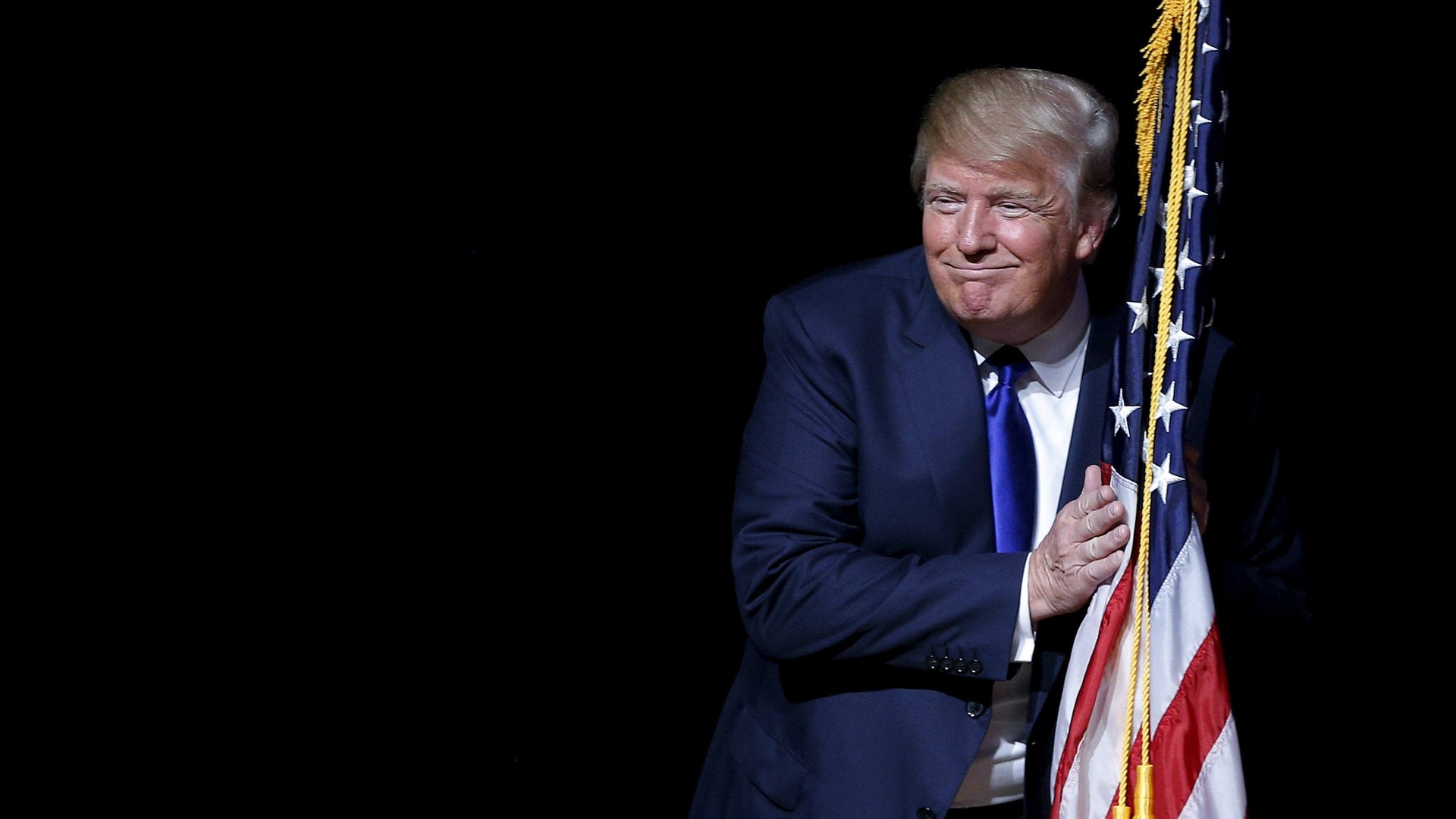Donald Trump has inspired an “America First” stock market rally
What’s good for the world’s largest economy is usually good for the rest of the world. Usually.


What’s good for the world’s largest economy is usually good for the rest of the world. Usually.
Investors are betting that president-elect Donald Trump will fulfill key promises made during the campaign, namely an ambitious plan to rebuild infrastructure and an aggressive rollback of regulation. He says these actions will boost economic growth; traders have responded by pushing the S&P 500, Dow, and Nasdaq stock indexes to new record highs.
But markets elsewhere haven’t followed suit, despite extensive trade and investment links with the supposedly soon-to-be-soaring US economy. Trump says the focus of his policies is to put “America first,” and that’s reflected in the markets.
The best-performing companies, in terms of share prices, have been those that will benefit directly from Trump’s proposed infrastructure spending, a reduction in financial regulation, a loosening of restrictions on energy production, and the detention and deportation of undocumented immigrants. For example, shares in US private prison operator CoreCivic have gained almost 60% since the election; an index tracking domestically focused banks has gained 16% over the same period.
Usually, a boost to the US economy would imply a boost in global trade, with export-dependent countries in Asia benefiting in particular. However, Trump’s promise to renegotiate free-trade agreements seems genuine, and he said on day one of his presidency he would definitively pull out of negotiations for the Trans-Pacific Partnership, a trade deal between 12 countries including the US. This, and Trump’s hostility towards trade with China, is behind the anxiety of investors in Asian markets.
The IMF, WTO, and others are worried that a continued slowdown in trade will hurt the global economy. Before the US election, asset manager Barings warned that all stocks would be hurt as a result. Over the past 30 years, equities have benefited from a “globalization premium” that added a percentage point to their price/earnings ratios, Barings said. It is now considering removing that factor in its forecasts, given the way things are going.
How does that square with soaring US stocks? Not all globalization premiums are the same. Only 30% of revenues at S&P 500 companies are generated overseas, compared with more than three-quarters of revenue for companies in the German and British benchmark stock indexes.
That means a rise in protectionism makes the US a better bet, relatively speaking, than markets where companies are more exposed to international trade. The Russell 2000, an index of small US companies that derive the vast majority of their revenues at home, is significantly outperforming the already jubilant S&P 500.
There are rarely winners in trade wars, but in the short term, at least, Trump’s zero-sum “America First” approach to indulging business at home and antagonizing partners abroad is boosting stocks in America, first.